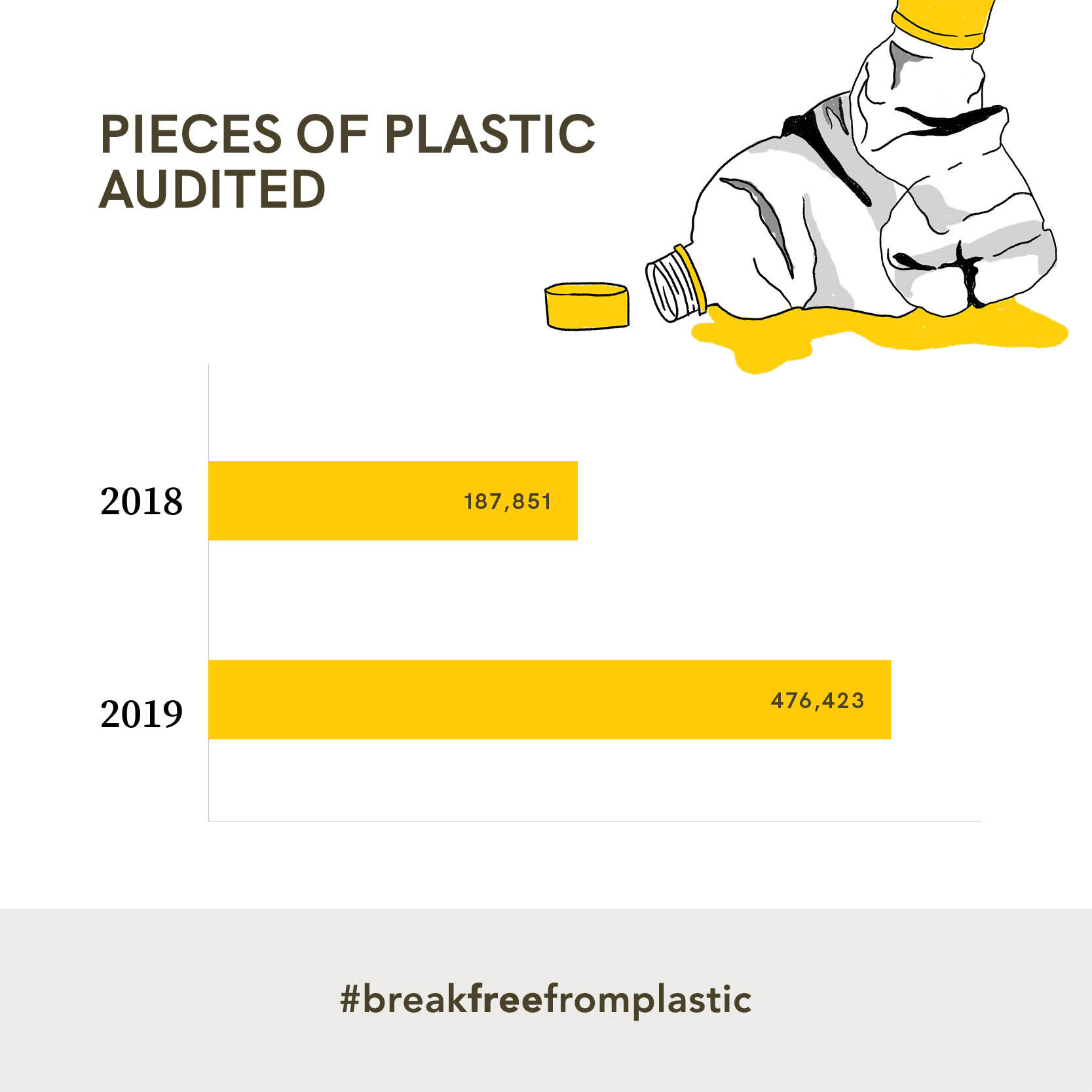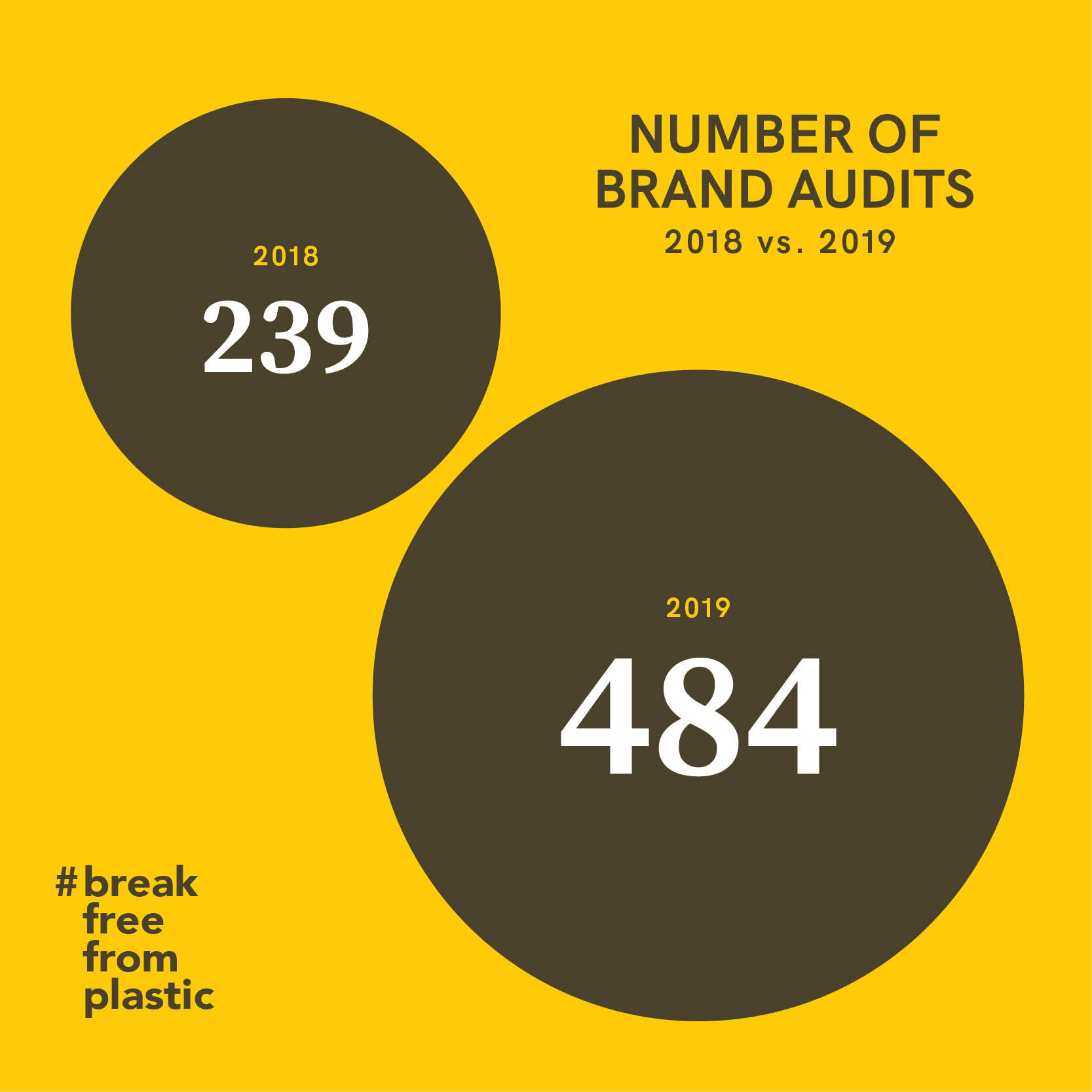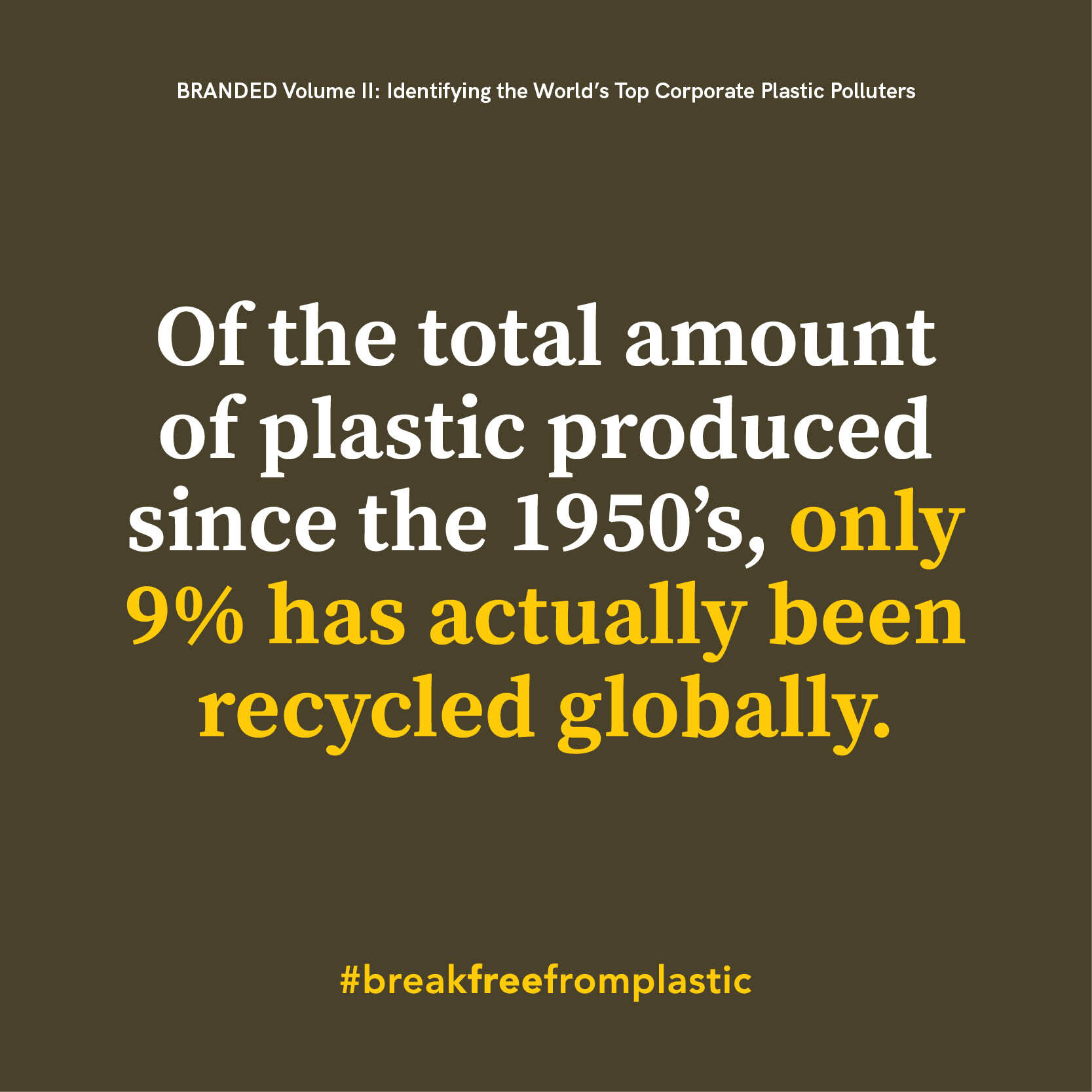TOP PLANET POLLUTERS are BRANDS not COUNTRIES
THE TOP 5 POLLUTERS are not Countries
THEY ARE CORPORATIONS.
I am not a business-blaming, corporate shaming mermaid. I 100% understand that the large-scale systemic change needed for our planet to be healthy and thriving will not come from my weaving circles or nut milk workshops. We have to get big business on board to establish regenerative business models that are questioned, tested, reformed and regulated to ensure they stay healthy and productive for our planet and wildlife--including us rewilding sapiens--to thrive.
How do we get these big corporations who are diving into skyscrapers full of our dollars to listen to us tree-huggers?? I am not against NAMING these brands and threatening their brand integrity by exposing the truth of their environmental negligence.
Break Free From Plastic has started a three-pillared movement. One pillar of this movement is to pressure corporations to phase out single-use plastic packaging and use their resources to come up with solutions--namely, reusable, repurposable packaging and refill systems at scale.
But, how to get their attention?
Well first, we need to determine who is contributing most to the problem. And this—ironically—is easy, because these big brands work very hard and spend lots of money to get their brand name all over every product they produce, distribute, and then neglect. They work hard to sell us all their stuff and convince us it is "recyclable" but they do not have the systems in place to collect, clean, or even recycle any of their products or materials!
Let’s get clear. All materials are in theory recyclable, but most materials that end up as product packaging (bottles, sachets, cups) are too contaminated with food waste, dyes, inks, glues, labels, and other layers of mixed-in materials to ever be actually recycled. Millions of kinds of packaging, millions of kinds of materials, all ending up in one giant recycling bin? No way. It is too hard to clean, too costly to separate. Especially when it is far far far cheaper to simply use virgin plastic. SIGH.
The media has helped us witness and realise the hazards of plastic pollution mounting on beaches, islands, low-income communities in both developed and developing countries, and even in our parks and along our highways. It is obvious that this amount of trash is bad. Whales are washing up with bellies full of plastic trash, folks are getting lung disease as communities burn the plastic trash to be rid of the mounting mess, children who grow up in these plastic wastelands show developmental disorders and predisposition for obesity and reproductive issues. Yes, we need to clean up these piles of theoretically recyclable but systematically ignored materials. But No, that is not complete or even most of the answer to this urgent problem.
The answer is to turn off the tap of plastics. We have to stop the dumping of plastics from the source. If you haven’t heard this analogy, yet, you’re welcome:
If your kitchen sink was overflowing, you would not reach for the mop. You would turn off the tap. It would be unwise to focus our efforts on cleaning up plastic pollution. We must focus on turning off the tap of plastics—focus on reducing oil extraction, plastic production and manufacturing, plastic product distribution. Turn off the flowing tap of plastics being sold into our marketplace and then neglected in our environment.
How do we turn off the tap? We cut off the main water lines.
BRAND AUDIT REPORT
Last month people all over the world gathered for World Cleanup Day to clean beaches, parks, valleys, riverbeds, etc. BFFP asked people to also tally up brand names during their cleanups, in order to get real data on what brands are creating the most pollution globally. Here are their findings:
Coca-Cola, Nestlé, and PepsiCo are the top 3 most identified companies in global brand audits for the second year in a row, according to the new brand audit report "BRANDED Volume II: Identifying the World’s Top Corporate Plastic Polluters."
484 cleanups in over 50 countries and 6 continents, organised by the Break Free From Plastic movement in September, identified the top polluting companies. The rest of the companies rounding out the top 10 polluters are Mondelēz International, Unilever, Mars, Procter & Gamble, Colgate-Palmolive, Phillip Morris, and Perfetti Van Melle.
“This report provides more evidence that corporations urgently need to do more to address the plastic pollution crisis they’ve created. Their continued reliance on single-use plastic packaging translates to pumping more throwaway plastic into the environment. Recycling is not going to solve this problem. Break Free From Plastic’s nearly 1,800 member organizations are calling on corporations to urgently reduce their production of single-use plastic and find innovative solutions focused on alternative delivery systems that do not create pollution,” said Von Hernandez, global coordinator of the Break Free From Plastic movement.
This year’s most frequently identified companies in the brand audits - Coca-Cola, Nestlé, and PepsiCo - have offered mostly false solutions to the plastics crisis, underscoring how important it is for voices from beyond the consumer goods sector to demand accountability and call for an end to single-use plastics. The list of top polluters is again filled with some of the world's most commonly known brands.
“Recent commitments by corporations like Coca-Cola, Nestlé, and PepsiCo to address the crisis unfortunately continue to rely on false solutions like replacing plastic with paper or bioplastics and relying more heavily on a broken global recycling system. These strategies largely protect the outdated throwaway business model that caused the plastic pollution crisis, and will do nothing to prevent these brands from being named the top polluters again in the future,” said Abigail Aguilar, Greenpeace Southeast Asia plastic campaign coordinator.
"The products and packaging that brands like Coca-Cola, Nestlé, and PepsiCo are churning out is turning our recycling system into garbage. China has effectively banned the import of the US and other exporting countries' 'recycling,' and other countries are following suit. Plastic is being burned in incinerators across the world, exposing communities to toxic pollution. We must continue to expose these real culprits of our plastic and recycling crisis,” said Denise Patel, US Coordinator for the Global Alliance for Incinerator Alternatives (GAIA).
SHARE THE REPORT! SHARE THE IMAGES! SHARE THE TOP POLLUTING BRANDS!
Help use this DATA to push for lasting, meaningful change.
Download the PRESS RELEASE HERE




